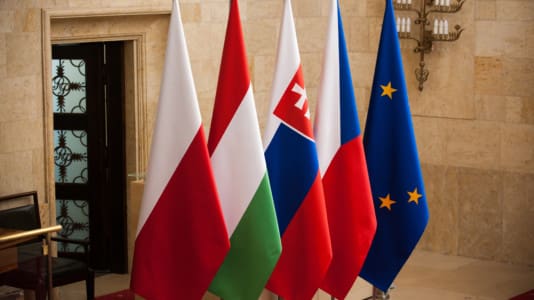In the Czech Republic, electricity prices rose the most in Europe in the first half of this year. We have another opportunity to lament this outcome, but also to think about what we are doing wrong. Even if we have sheltered the Czech public from some price increases, which will cost tens to hundreds of billions in borrowing anyway, we have the opportunity to experience the downside of our close connection with Germany even after we always considered it our advantage.
Being a small and open economy that depends fundamentally on international trade has its advantages, but when the world gets stuck and our close friends decide to commit economic suicide for the sake of “green” myths, it hurts a little more than other countries where they look out more for their own.
We have long been very closely connected economically with Germany, including in terms of energy prices, especially electricity. Together with Germany, we have had among the most expensive prices in the world for a long time. This was the case long before the war in Ukraine. Our energy systems are tightly interconnected and practically represent one market personified by the now-hated Leipzig Stock Exchange. But even though we are economically almost aligned with Germany, we do not have the famous German salaries, so energy traders who speculated for many years with favorable spot prices did very well here.
They offered cheaper electricity to households and made billions because people liked it and didn’t understand the risks. They were also often lied to. When the spot prices went crazy last autumn, the well-known Bohemia Energy fell, followed by many other smaller and larger companies of the same type, and thousands of households were put into the supplier-of-last-resort track. These are the Czech consumers that experienced the first price shock.
We have somewhat forgotten about it, but that was the first big increase in price, although it was almost exclusively in the Czech Republic. It certainly plays a very significant part in the aforementioned European primacy in the first half of the year, and the postponement of subsidy aid follows immediately. After years of giving it away, there just isn’t any money and borrowing costs are getting very expensive, as anyone who has refinanced a mortgage recently knows.
Now, prices are leveling off with the adoption of both European and national efforts to rein in energy prices, but it is completely futile to pretend that the situation in the Czech Republic can be significantly better than other countries on the continent.
Our connection with Germany and the entire European market is still indispensable. When Germany’s behavior and its giant reckless subsidization of its own industry threaten to start disintegrating that market, there is no clear reason to believe that electricity will be cheaper for Czechs. At the same time, there will be a jump in the number of unemployed people who could not afford even the cheap price anyway.
Far more frustrating than the price hike charts is watching the European establishment going in the same direction despite the obvious unsustainability of this policy. We continue down the path of limiting investments in conventional energy and looking forward to emission-free tomorrows regardless of the reality of these ideas, even though it has led us to where we are.





